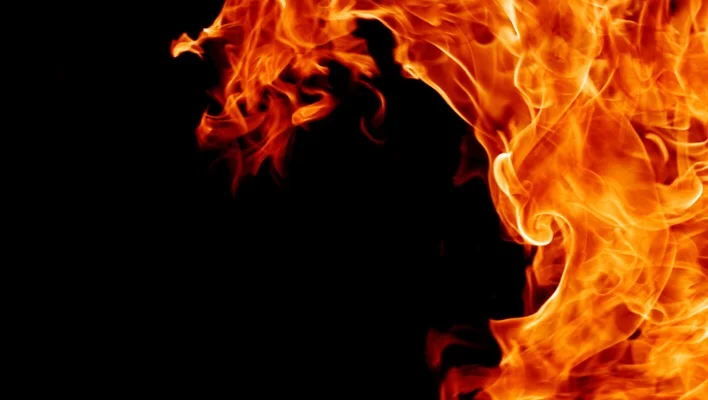Readings for the day: Leviticus 8, 9, 10
I love this quote from Annie Dillard. “On the whole, I do not find Christians, outside of the catacombs, sufficiently sensible of conditions. Does anyone have the foggiest idea what sort of power we so blithely invoke? Or, as I suspect, does no one believe a word of it? The churches are children playing on the floor with their chemistry sets, mixing up a batch of TNT to kill a Sunday morning. It is madness to wear ladies’ straw hats and velvet hats to church; we should all be wearing crash helmets. Ushers should issue life preservers and signal flares; they should lash us to our pews. For the sleeping god may wake someday and take offense, or the waking god may draw us out to where we can never return.” I tend to agree. We are far too often unaware of the sheer and utter holiness of the One we approach Sunday after Sunday. We treat Him far too casually.
Worship for the Israelites was a dangerous proposition. Not because God is capricious or reckless or mentally unstable. But because God is holy. Pure. Dwelling eternally in unapproachable light and glory. His presence is a consuming, purifying fire. It separates gold from dross, wheat from chaff, clean from unclean by its very nature. It’s a double-edged sword. Piercing to the deepest recesses of our souls and joints and marrow. Cutting away all that is rotten and septic within us. Every time we invoke His name. Every time we enter His presence. Every time we come before Him in worship, we are literally entering the Most Holy Place. And this is why Dillard challenges us to become more aware of our surroundings. More aware of gulf that exists between an unholy people and a Holy God. More aware of the nature of the One we approach and to take the necessary precautions when we come to worship.
The Israelites knew all this, of course. And yet even they could become far too casual about worship. “Now Nadab and Abihu, the sons of Aaron, each took his censer and put fire in it and laid incense on it and offered unauthorized fire before the Lord, which he had not commanded them. And fire came out from before the Lord and consumed them, and they died before the Lord. Then Moses said to Aaron, "This is what the Lord has said: 'Among those who are near me I will be sanctified, and before all the people I will be glorified.'" And Aaron held his peace.” (Lev. 10:1-3) I cannot imagine watching my children die in worship. I cannot imagine watching them burn to death before the Lord. I cannot imagine the fear and anger and frustration I would feel. But then again, I have not seen God face to face. I’ve not had to endure His fiery presence. I’ve not felt the fear the Israelites experienced when they approached God in His sanctuary. Christ, thankfully, saves me from His righteous wrath. Christ, thankfully, turns aside the Father’s burning anger and takes it on Himself. Christ, thankfully, satisfies all the demands of God’s justice and because of His shed blood, I am made pure. I am made clean. I am made holy. Aaron and his sons had none of these benefits. They had to tread very carefully in the presence of God. They had to perform their duties with devotion and carefully do all God commanded.
We do not understand the nature of sin. We tend to think of sin in rational terms. Errors in judgment. Honest mistakes. Poor choices. Leviticus uses completely different categories. Sin is impure. Unclean. Unholy. It is rotten. Decaying. Festering. Decomposing. Corruption. In order to really grasp the nature of sin, we have to leave the rational behind and think in Biblical terms. The other day, my children took our dog on a walk. Along the way, he found the corpse of a rabbit that had been dead a while. He naturally grabbed it and my kids were disgusted. How many of us have been hiking in the mountains and have come upon the worm-filled, decomposing corpse of some animal and been similarly repulsed? I think of the clean up work we did in the wake of Hurricane Katrina and the smell of rot and decay we had to put up with as we gutted homes and cleaned out refrigerators. It was nasty work that made us routinely gag. That’s the stench of sin and it’s why sacrifices had to be burned continually before the Lord.
How seriously do you take your sin? How seriously do you take your thoughts, attitudes, and actions before the Lord? How seriously do you take your worship? Do you take Christ’s sacrifice for granted? Are you, as the Book of Hebrews warns, “sinning deliberately after receiving the knowledge of the truth?” If so, hear very clearly these sobering words, “there no longer remains a sacrifice for sins, but a fearful expectation of judgment, and a fury of fire that will consume...” (Heb. 10:26-27) We will never be perfect, of course. But to continue to sin deliberately. To continue to pursue a lifestyle that offends God. To continue to refuse to give God the glory and honor He deserves is to wallow in filth. It’s to “trample underfoot the Son of God and profane the blood of the covenant by which He was sanctified and outrage the Spirit of grace.” (Heb. 10:29) And this, my friends, is a dangerous thing. Just ask Nadab and Abihu.
